RE: COCOBOD Case: A. A. Bright Esq. Insists Court Of Appeal’s Excoriation ‘Completely Unwarranted’ | Features
[ad_1]
The author of the article, A.A Bright Esq, tries to impress his readers with his legal title. However, his article lacks any scholarly or legal merit. He fails to support his argument with proper authority and shows a poor or dishonest understanding of the Common Law.
For example, he claims that the common law position was that a new judge must hear a case de novo if the original judge becomes unable to continue. He cites the case of Republic v Adu-Boahene and Kwesi Pratt [1993] DLSC4893 as his authority. However, this case has nothing to do with his claim. It was about the interpretation of the words “partly heard” and “pending” in the Transitional Provisions of the 1992 Constitution. The lead judgment was given by Mr Justice Francois, who was joined by other judges, including Mr Justice Amua-Sekyi.
Mr Justice Amua-Sekyi expressed his opinion on what happens to cases partly heard when a judge becomes unable to continue, but he was not joined by any of the other judges. Therefore, his opinion was not part of the ratio decidendi or the legal precedent of the case. Any lawyer with a basic understanding of the distinction between ratio and obiter would know this. A A Bright Esq either does not know this or deliberately ignores it.
The author, A A Bright Esq, should have consulted the authoritative sources on common law, such as Blackstone’s and Halsbury’s Laws of England, before making his claim. These sources are the basic reference for any lawyer who wants to research common law principles. Halsbury’s Laws of England, Courts and Tribunals Volume 24A (2019) paragraph 34 is authority for the proposition that at common law, when a judge became indisposed during the trial, the outcome depended on whether the judge had heard the case with or without a jury.
If there was a jury, the case was heard afresh. If there was no jury, the parties could consent to continue with a new judge. However, the courts were reluctant to order fresh hearings even when there was a jury involved and the new judge continued from where the previous judge left off provided he had obtained the consent of the parties.
For example, in Coleshill v Manchester Corporation ([1928] 1 KB 785), a personal injury claim was tried by a jury before Fraser J at the Manchester Assizes. He died suddenly during the hearing and Acton J took over his list. He resumed the hearing of the case and had the evidence already given read, with the full consent of both sides. Both sides had very experienced counsel.
The Court of Appeal did not object to this procedure, except for Scrutton LJ who wondered in obiter dictum if this practice could be followed in future cases with juries. However, later decisions continued to accept that cases could proceed on the evidence adopted if there was a change in the bench.
For instance, in The Forest Lake.; Owners of The Steamer Janet Quinn v Owners of The Motor Tanker Forest Lake [1966] 3 All ER 1, the court agreed to continue with the hearing despite a change in the bench, considering factors such as cost, expense and availability of previous witnesses. The trial judge significantly did not find himself bound to the obiter of LJ Scrutton. Similarly, in Bolton v Bolton 1949 2 All ER 908, the court refused to grant a request for rehearing even after finding that the proceedings had been irregular, because the facts in the case were clear enough.
The common law principle was therefore clearly that, when a judge became unable to continue a case, the parties could consent to continue with a new judge or start afresh. The courts would respect the parties’ choice and would not interfere with the findings or conclusions reached by the new judge. This principle was adopted and practised in Ghana, a common law country via Boama v Okyere [1967] GLR 548.
In Boama, Counsel for both parties applied for Mr Justice Annan to adopt the former proceedings before Mr Justice Boison, who initially tried the matter and had received evidence from the parties. Annan J, as he then was, found ‘although the usual practice was to hear evidence afresh the Court did have power, where the peculiar facts of the case so permitted, on grounds of convenience and expense to order that the evidence in the first trial be adopted in the second trial by consent of all parties.
And in Awudome (Tsito) Stool v Peki Stool [2009] SCGLR 681, the Supreme Court of Ghana confirmed this analysis on the adoption of proceedings at common law and recounted the common law on the adoption of proceedings as that when a case is transferred from one High Court to another, the parties have the option to adopt the proceedings or have the trial started de novo. The Court observed that the common law rule had been adopted and practised in Ghana’s courts for many years.
In support of that proposition, the Supreme Court cited and blessed the authority of Boama v Okyere [1967] GLR 548, which had more or less incorporated the common law rule into our jurisprudence.hat proposition, however, produced an unintended result that affected the justice administration system. Lawyers were usually unwilling to grant that consent required for the adoption of proceedings, resulting in cases being tried de novo, almost as if that was the law’s default position.
However, the Supreme Court’s position was the law and binding on all courts. The matter was complicated further by the fact that the Supreme Court in Awudome found the election to seek a new trial or adopt the previous proceedings was ‘a well-established vested right, and if it had to be taken away, it had to be done in clear terms’- divesting Courts of the power to check or stop abuse arising from the Common Law position.
The respected jurist SY Bimpong-Buta took exception to the common law and practice arising out of it and strongly advocated for a departure. His views persuaded and shaped the Supreme Court’s departure from the Common Law position in ANANE. vs. AGYEMANG & 7 ORS. CIVIL APPEAL NO. J4/42/2013 SC.
In deciding Anane, the Supreme Court was mindful of the need to ’employ a more radical and constitutionally based approach to determine the rather nagging question of what the proper legal procedure is for adopting proceedings before a previous judge.’
In adopting SY Bimpong-Buta’s views, the Supreme Court found the common law practice dependent on the unequivocal consent of counsel for the parties to be archaic, retrogressive, and producing unjust results. That was due to the refusal of counsel to consent, resulting in judges yielding to a de novo hearing. The Court firmly rejected the argument justifying de novo trials based on witness demeanour. It found that witness demeanour was not a very significant factor in evaluating evidence.
The Supreme Court in Anane held that courts relied more on other criteria in evaluating evidence. These criteria included documents, disinterested witnesses, and the implausibility of narrations. Further, the Court found that long trials may make demeanour irrelevant as memories fade, allows parties to reconstruct cases, encourages embellishment of cases, denies justice if witnesses are unavailable, and denies justice if vital exhibits are lost but recorded.
Based on all that, the Supreme Court decided to depart from the common law position. It overruled Awudome and, by extension, Boama. It established a unique path vesting the discretion of whether a trial should be held de novo or continued by the trial judge.
The decision in Anane established two broad factors to be applied by a judge exercising that judicial discretion. First, the decision to adopt previous proceedings must ensure that there is no miscarriage of justice. Second, the Court should consider the length of the case on the calendar, trial stage; witnesses examined, issues, evidence type, objections, witness availability, and record quality.
Thus, if Anane is still good law, as it is submitted it is, then a judge confronted with the determination as to whether a trial should start de novo or adopt the previous proceedings must reach a reasoned view informed by a proper balancing of the factors set by the Supreme Court in the Anane case.
It could be argued by some that the Anane case only applied to civil trials and did not extend to criminal trials. However, this argument is not supported by the language used by the Supreme Court in its decision or its analysis. Nowhere in the Anane case did the Supreme Court limit its decision to civil trials, nor did it suggest that its reasoning and analysis were limited to civil proceedings.
In fact, the Supreme Court’s decision in Anane was based on a fundamental departure from the common law position in Ghanaian courts regarding the adoption of proceedings, which applied to both civil and criminal trials. The Court was, therefore, mindful of the need to employ a more radical and constitutionally based approach to determine the proper legal procedure for adopting proceedings before a previous judge. Hence, its analysis and decision cannot be limited to civil trials.
Moreover, the factors established by the Supreme Court in Anane for adopting proceedings are broad and general, encompassing civil and criminal trial standards for arriving at a reasoned decision in the interest of justice. These factors include ensuring that there is no miscarriage of justice, considering the length of the case on the calendar, trial stage, witnesses examined, issues, evidence type, objections, witness availability, and record quality.
Therefore, the argument that the Anane case only applied to civil trials will be a gross misapprehension of the judgment and ratio. The effect of the above analysis is that per the authority of precedent, the Court of Appeal was required to determine whether the trial Judge had properly exercised his judicial discretion in requesting for the trial to start afresh. By simple force of logic, even if the Supreme Court was wrong, which is strongly submitted was not the case, the Anane decision was binding on all Courts including the Court of Appeal.
The OPUNI TRIAL
Based on the above principles, it was proper to submit that the decision taken by Mr Justice Gyimah was wrong in law and was reached without sufficient or any consideration of the factors established by the Supreme Court in ANANE. In particular, the Supreme Court’s guidance on when a new judge should adopt the previous proceedings or start afresh.
In Anane, the factors the Supreme Court established included whether there was any miscarriage of justice in the previous trial. It also said that other factors to consider were the length of the case, the stage of the trial, the effect of time on the evidence, and the balance between observing witnesses and avoiding delays.
In the Opuni case, there is no evidence of any miscarriage of justice in the previous trial. The original judge had found that Opuni had a case to answer and his finding was upheld by the Supreme Court on several occasions. The witness demeanour, which Mr Justice Gyimah was interested in, while important was not of such importance in evaluating evidence to override the need to achieve expedited hearings. And there is authority for the proposition that a Court relies more on other criteria in evaluating witness credibility such as such as documents, witnesses affiliation and associations to the proceedings, and the plausibility of narrations.
The Opuni case has been going on for over five years, mainly because of Opuni’s delay tactics. It is at an advanced stage of trial and a de novo hearing would cause further delay and injustice to the State. More importantly, it also undermine the need for speedy trials and the sound policy rationale in Anane v Agyemang.
Therefore, the judge’s decision was inconsistent with the Supreme Court’s guidance on adopting proceedings and a more careful consideration of the relevant factors would have led to a different outcome.
Conclusion
At the Law School, we were taught that lawyers had three options to deal with any situation. They could rely on the law, if they knew it well; they could rely on the facts, if they had them; or they could rely on rhetoric, if they had nothing else. But we were also warned that using rhetoric was a sign of weakness and desperation. It would undermine not only the lawyer’s credibility but also the public’s confidence in the legal profession.
We learned to shun rhetoric as a cheap tactic in our arguments. We had an ethical duty to base our submissions on authority, precedent or the law, not on dubious, false claims or even our opinion of the law. A lawyer could never offer their opinion on the law, especially to the Court. If we made a mistake or misled anyone, we had to correct it as soon as possible. These sound principles were part of Legal Ethics, part of a lawyer’s integrity and essential for lawyers.
That is why I was shocked by the article of A A Bright Esq, which attacked the Court of Appeal judges with contempt and ignorance, pretending to be scholarly. I wonder how any reasonable lawyer, aware of their duties and obligations, could reach the conclusions that A A Bright Esq did against the erudite judgment of their Lordships of the Court of Appeal.I urge A A Bright Esq to consider his own position and do what is honourable.
Source: A. A. Bright Esq
| Disclaimer: Opinions expressed here are those of the writers and do not reflect those of Peacefmonline.com. Peacefmonline.com accepts no responsibility legal or otherwise for their accuracy of content. Please report any inappropriate content to us, and we will evaluate it as a matter of priority. |
Featured Video
[ad_2]
Source link

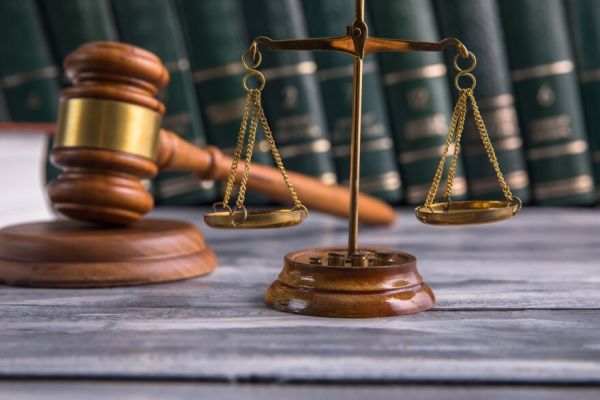

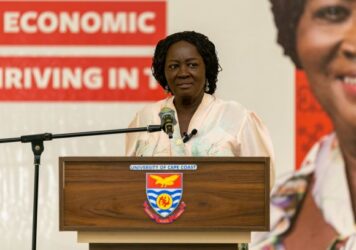

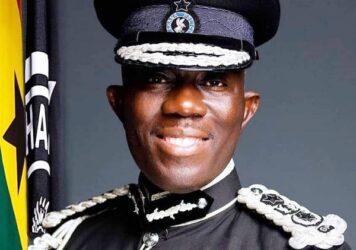
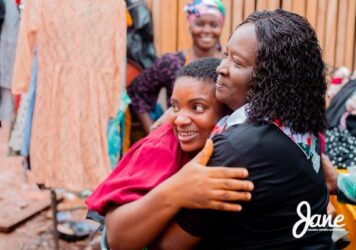

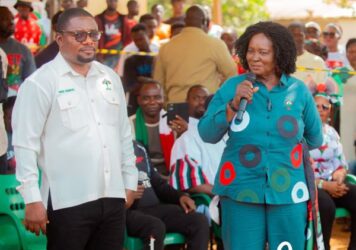

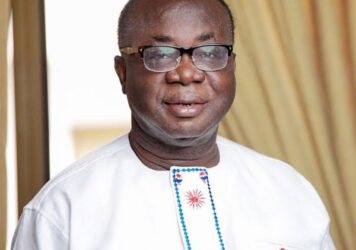


Leave a Reply